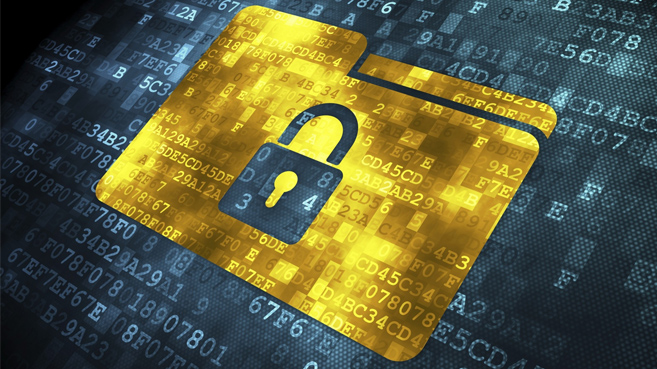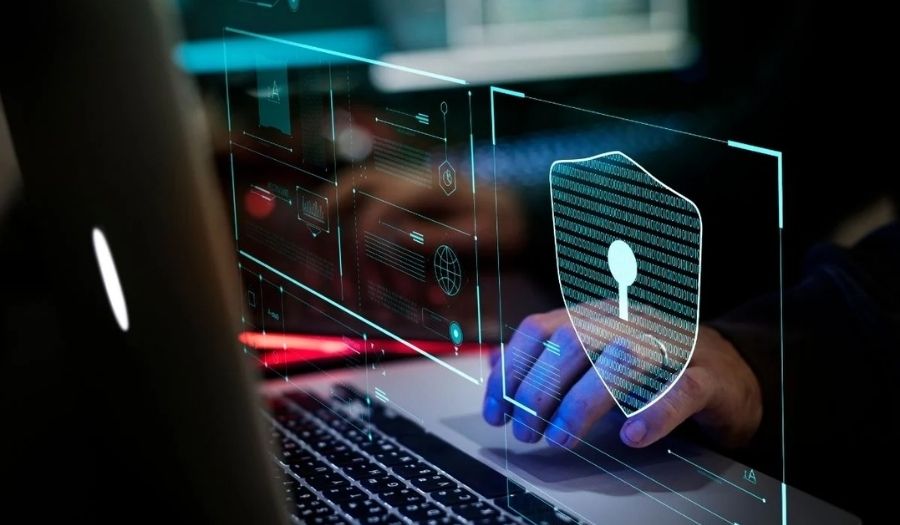
16-01-2024 | Noticias-en
Regarding a conversation related to the new Economic Crimes Law, we had a question about whether there is expressly a legal obligation that orders me to submit to the internal regulations of third parties related to my activity. The above, considering that, if effective, this implies that I must read, know and apply all the policies and manuals of my clients and, eventually, other third parties.
In that sense, and at least as far as it concerns a contractual relationship with clients or counterparties on an equal footing in negotiation, it is reasonable to maintain that if I sign a contract with a third party, in which my complete opposition to the commission is expressly mentioned of crimes within my organization, and I have a living, controlled and regularly updated prevention model, it should not be an imperative to have to submit to the self-regulation of my related parties.
In addition to being somewhat extreme, requiring all companies to comply with each of the internal obligations of their related parties, which commonly also depend on the needs, logic and legal techniques of each original regulation, it is tremendously expensive—in terms of time and efficiency—think that each company has to submit, purely and simply, to each and every one of the policies and manuals that make up the Crime Prevention Model of related third parties, simultaneously avoiding its potential application and also ensuring to be attentive to the possible modifications of each of such models (in foreign, and sometimes even foreign, computer servers), which is what is usually asked to accept, ex ante, in such types of regulations.
Although the “obligation” referred to above is inserted in the context of the elements that a crime prevention model must contain, in accordance with the provisions of Article 3 No. 3 of Law No. 20,393, in practice it is observed that These obligations, prohibitions and sanctions mainly deal with the establishment of specific prohibitions relating to certain topics (eg, making facilitation payments, making decisions through undeclared conflicts of interest, carrying out illicit activities in the context of the execution of the contract) and compliance with obligations to report any suspicious situation through established reporting channels, among other points. But the problem, also practical, is that the way of approaching how these obligations, prohibitions and sanctions are implemented for those who contract with another has generally consisted of the supposed duty of having to accept, as noted, purely and simply , the entirety of a certain Crime Prevention Model that is imposed on the other, as a condition of the conclusion of the respective contract.
Consequently, and reflecting on the actual implementation of the new Economic Crimes Law, it is to a certain extent unfeasible, and, at the same time, excessive, to think that all companies must sign the internal regulations of their related third parties and accept them in a closed package. Without prejudice to the foregoing, the failure to incorporate clauses relating to compliance with the crime prevention model could entail risks for the provider when accrediting compliance with its management and supervision duties, especially when what is in question, eventually, is the liability of the legal entity for criminal acts committed in the context of the supplier/client contractual relationship.
From a practical perspective, it should be noted that a serious and relevant situation that involves the commission of an illegal act will require addressing potential criminal contingencies as a first priority, which will allow for early mitigation of possible contractual risks related to non-compliance with these clauses.
Thus, today it is essential to review the contracts with my related third parties and not rest on the fact that there is an identical standard clause in all of these and that it must be accepted automatically or sine qua non to conclude the contract. We think that essential base points can be established, with common objectives, with a view to safeguarding the legal assets protected in Law No. 20,393, such as the obligations, prohibitions and sanctions already mentioned, and contractually refine the relevant points for both parties, but this It does not mean that I must necessarily submit to the internal regulation of my suppliers and clients.
By the way, as part of such essential bases, the controls through the contracts and monitoring of the correct fulfillment of the services agreed in this will be an important armor in the eventual case that said third party commits a crime in the context of the functions that are the subject of my contract.
* Francisca Franzani is director of the Compliance group at Albagli Zaliasnik and Andrés Illanes is manager of Corporate Affairs at Bodegas San Francisco.
Source: El Mercurio
For more information you can contact :

Francisca Franzani | Compliance Group Director | ffranzani@az.cl

11-01-2024 | Noticias-en
In today’s dynamic corporate landscape, Compliance management is not only about legal obligations, but is a strategic tool to support the integrity and sustainable success of organizations. In the context of this complexity, two fundamental elements stand out: committed leadership in the Compliance function and the construction of an ethical corporate culture. Next, we will analyze the interrelation of these elements, as well as their relevance in the interpretation of Compliance regulations.
The effectiveness of Compliance programs does not lie simply in the implementation of written policies, but in their daily roots in the organization. This firm commitment is achieved through internal leadership, genuinely attending to the good practices of those who direct and manage corporations at all levels.
Leadership and corporate culture: two indivisible pillars. Leadership and corporate culture are interdependent concepts that subsist in the Compliance ecosystem. Composed of values and actions, culture represents the organization’s ethical system. Leaders, for their part, instill these values in employees, thus guiding the purpose for which daily tasks are carried out.
Ethical and cultural leadership. Effective leadership in Compliance not only focuses on the regulatory system applicable – both internally and externally – to organizations, but especially has a positive influence on the overall operation of the company. Indeed, the leader in the field of Compliance must promote ethical values, communicate the importance of Compliance and establish accessible and effective policies in accordance with the corporate culture of the organization. Therefore, corporate culture, as an informal system in the organization, becomes essential to interpret Compliance regulations.
Normative interpretation and the influence of culture. Culture forms the approach through which Compliance regulations are understood and applied. An ethical culture facilitates a deep understanding and ultimate purpose of the standards, ensuring that the mere compliance with formal requirements is not sought, but rather the following of principles rooted at all levels of the organization. That is to say, it is no longer just the actions that matter, but rather that they are carried out in accordance with the organizational culture and pre-established ethical values.
Leadership and culture: key elements to achieve a comprehensive interpretation of Compliance. Ultimately, an effective Compliance program depends on leaders who consider it vital to organizational success. The link between ethical leadership and a solid corporate culture not only drives the design and effective implementation of regulations, but also guarantees a thorough interpretation of the regulatory framework, contextualizing it according to the organization’s design of ethical values. On this path towards excellence, training and professionalization of the Compliance discipline, leadership and culture become lighthouses that guide sustainable organizations appropriate to current corporate evolution.

By Lucía Rodríguez Wikman, Lawyer | CIEMSA | Compliance Latam Collaborator

09-01-2024 | Noticias-en
The Argentine government, through the recently presented Omnibus Law, provides for the creation of a voluntary Asset Regularization Regime, for the laundering of assets not declared for tax purposes, held as of December 31, 2023.
As a novelty, we highlight the express introduction of cryptoassets or cryptocurrencies as goods subject to externalization. In this sense, they are introduced into the category of “Goods abroad”, regardless of who was their issuer, who is their owner or where they were deposited, guarded or stored.
For more information contact:

Gustavo Papeschi | Partner of Beccar Varela | gpapeschi@beccarvarela.com

28-11-2023 | Noticias-en
The fines that are reducible are those imposed by:
- Non-compliance with employer registration in the Employer Workers’ Registry.
- Failure to submit labor forms.
- Lack of communication of entry and exit of workers.
- Lack of communication of permits and vacations granted.
- Lack of communication of reprimands, warnings and suspensions of workers,
- Lack of communication of work accidents, risks and occupational diseases.
- Balances due to late payments of installment fines, as long as the request for installment of the fine is prior to the date of the decree.
For the first 6 fines mentioned, employers will have the fine divided into up to ten (10) installments of equal value, but a minimum initial delivery of twenty percent (20%) of the entire reduced fine must be made.
Fines that were divided prior to this decree may only benefit from the reduction by paying the entire reduced fine. If this is not a possibility for the employer, they will have to continue complying with the payment of the installments.
For more information contact:

Carla Arellano | Counselor Ferrere | carellano@ferrere.com

28-11-2023 | Noticias-en
A few days after its entry into force, it is important to remember one of the most important advances that we have had in recent months in labor matters in Mexico: the publication of the Official Mexican Standard NOM-037-STPS-2023. Teleworking – Health and safety conditions in teleworking (NOM-037), on June 8, 2023.
As part of the most important obligations for the employer, there are the following:
Have an updated list of working people under the teleworking modality.
Ensure that the workplaces in which services are developed under the teleworking modality comply with specific health and safety conditions.
Have the validation of the “checklist of health and safety conditions in teleworking”.
Establish in writing the procedure to migrate from in-person to teleworking and vice versa.
Provide ergonomic chairs and other supplies and accessories necessary for the performance of teleworkers’ tasks.
Create and document programs regarding how to provide maintenance to electronic equipment delivered to employees under teleworking modality.
Provide training to teleworkers on health and safety conditions that they must maintain in their workplace, at least once a year.
Perform medical examinations that correspond to workers in accordance with NOM-030-STPS-2009 (Preventive health and safety services at work-Functions and activities), and follow up on work accident notices.
Have care mechanisms for cases of family violence.
Have a Teleworking Policy.
In this sense, a large part of the provisions of NOM-037 refer to the predominant role of the Safety and Hygiene Commission in verifying the safety and health conditions in the workplaces of teleworkers. At the same time, it highlights the obligation to have a Teleworking Policy, which must be developed by the employer, based on a gender perspective, as well as contemplate the necessary mechanisms for the protection of workers.
NOM-037 will come into force on December 8, 2023, so there are only a few days left for it to be verified by labor authorities regarding compliance.
For more information contact:

Juan José López de Silanes | Partner Basham, Ringe and Correa | lopez_de_silanes@basham.com.mx










